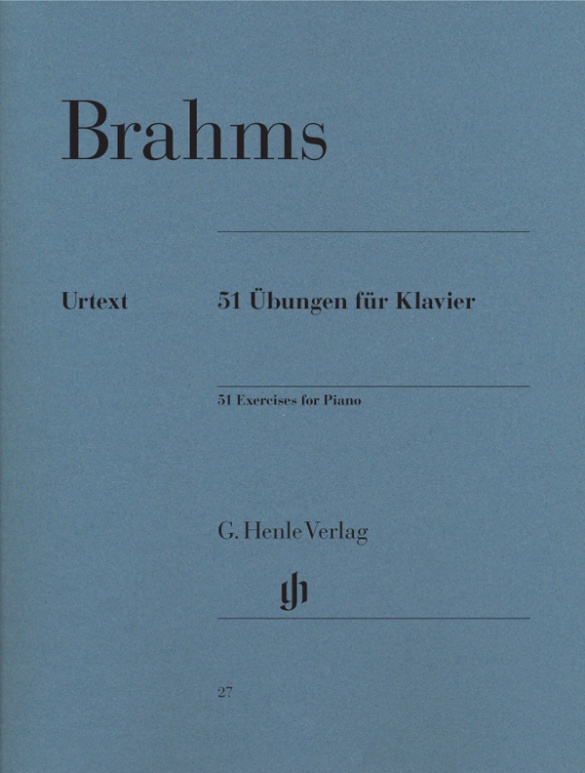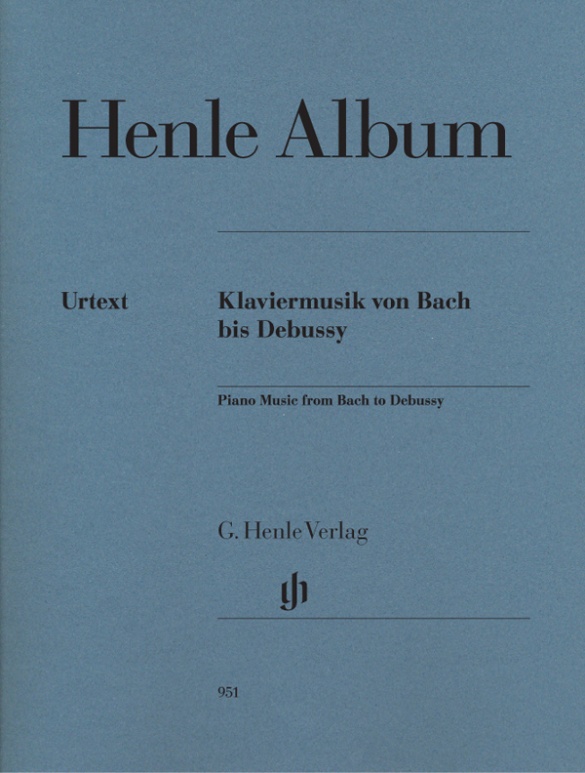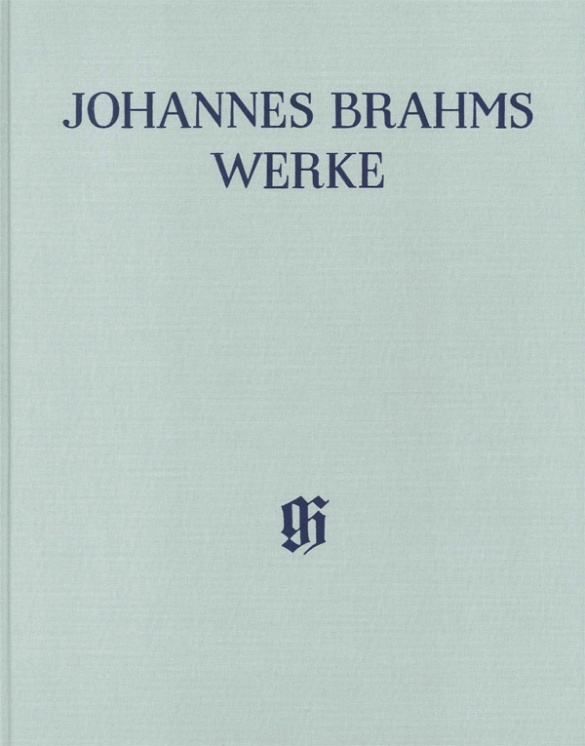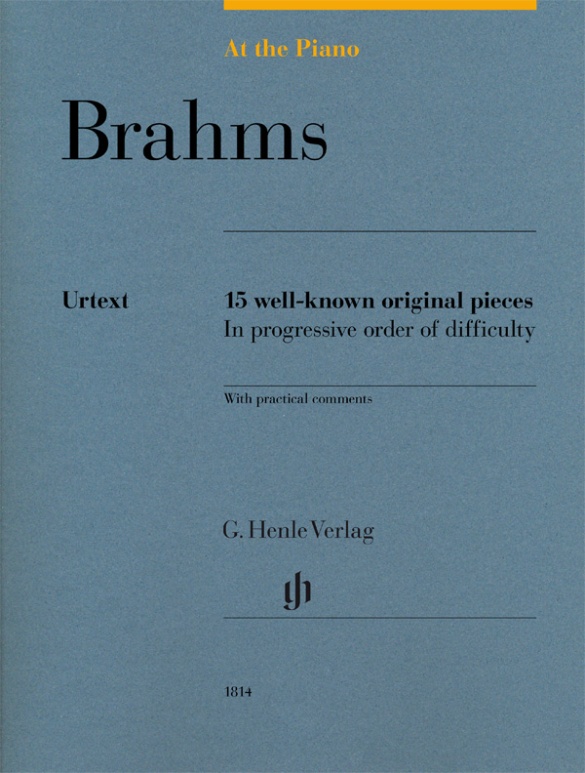

Johannes Brahms
At the Piano - 15 well-known original pieces
Brahms’s music does not have to be difficult or melancholy – our selection here proves it. Even less advanced pianists will find playable, immediately appealing pieces amongst his works for piano. His delicate intermezzi are dreamy and soulful in mood, while our selection of his waltzes (which Brahms himself published again in simplified versions) shows his cheerful, “Austrian” side.
Content/Details
(Explanation)
About the Composer

Johannes Brahms
His significant output comprises chamber music, piano works, numerous choral compositions and songs (including settings of folk-song lyrics), as well as large-scale orchestral works in the 1870s and 1880s. His compositions are characterized by the process of developing variation. He is considered an antithesis to the New German School around Liszt, and an advocate of “absolute” music.
| 1833 | Born in Hamburg on May 7, the son of a musician. His first piano instruction with Willibald Cossel at age seven, then with Eduard Marxen; first public performances from 1843. |
| 1853 | Concert tour through German cities; he meets Schumann, who announces him as the next great composer in his essay “Neue Bahnen” (“New Paths”). A lifelong, intimate friendship develops with Clara Schumann. |
| 1854–57 | Piano Concerto No. 1 in D minor, Op. 15. |
| 1857–59 | Choir director, pianist, and teacher at the royal court in Detmold. |
| 1859–61 | Director of the Hamburg Women’s Choir. |
| 1860 | Manifesto against the New Germans around Liszt. |
| 1863 | Cantata “Rinaldo,” Op. 50. |
| 1863–64 | Director of the Wiener Singakademie. |
| 1868 | Partial performance in Vienna of “A German Requiem,” Op. 45 (the complete work premiered in Leipzig in 1869) |
| 1871–74 | Artistic director of the Gesellschaft der Musikfreunde (Society of Friends of Music) in Vienna. |
| 1873 | Haydn Variations, Op. 56a, for orchestra. |
| from 1877 | His symphonic output begins with the Symphony No. 1 in C minor, Op. 68 (begun 1862); composition of the Symphony No. 2 in D major, Op. 73; the Symphony No. 3 in F major, Op. 90 (1883); and Symphony No. 4 in E minor, Op. 98 (1884–85): cantabile themes, chamber-music-like style. |
| from 1878 | Travels in Italy. |
| 1878 | Violin Concerto in D major, Op. 77, for Joseph Joachim. |
| 1881 | Piano Concerto No. 2 in B-flat major, Op. 83, with a scherzo movement. |
| 1886 | Honorary president of Vienna’s Tonkünstlerverein (Association of Musicians). |
| 1897 | Four Serious Songs, Op. 121. Dies in Vienna on April 3. |
About the Authors
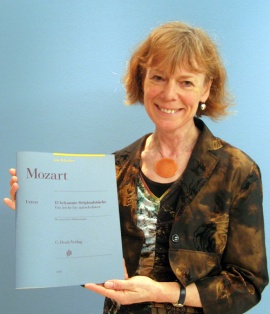
Sylvia Hewig-Tröscher (Editor, Fingering)
Sylvia Hewig-Tröscher studied piano at the Hochschule für Musik in Munich under Erik Then-Bergh and Hermann Reutter, as well as under Louis Hiltbrand at the Conservatoire de Musique in Geneva. 1977 she finished the „ Classe de Virtuosité“ in Geneva with the Premier Prix avec distinction and received the Henry Broliet prize as well as being awarded the GEDOK prize. Also organ studies under Lionel Rogg finishing with the „Diplome d’Orgue“. Masterclasses with George Halmos, Klaus Schilde, Karl Seemann and Wilhelm Kempff, followed, as well as with the cembalo player Li StadelmannIn. 1977 the piano trio Orfeo was established.
Since then, as a solo pianist and chamber musician, her concert activities have led her to Germany, Switzerland, France, Italy, Austria, America, Egypt, India, Korea, and Japan. The list of recordings includes Bayerischer Rundfunk and Südwestfunk Freiburg, Baden-Baden, record and CD recordings of (among others) seldom played works of the classical and romantic periods with Musica Bavarica. Further CD recordings including modern music and first performances with Calig, Symicon, Bayer Records, Arts Magnamedia, and Sony, also co-production of the Bayreischer Rundfunk and Deutscher Musikrat.
Masterclasses in Villa Marteau, Marktoberdorf, Hammelburg, Brixen, Castelnuovo di Garfagnana and New York. Today Sylvia Hewig-Tröscher works as a professor of piano and vice president of the Hochschule für Musik and Theater Munich.
Product Safety Informations (GPSR)

G. Henle Verlag
Here you can find the information about the manufacturer of the product.G. Henle Verlag e.K.
Forstenrieder Allee 122
81476 München
Germany
info@henle.de
www.henle.com
At The Piano is an excellent series for students and teachers. Those who fancy learning a major composer’s ‘piano favourites’ will really enjoy working their way through each book. G. Henle have combined a scrupulous ‘pure’ score with plenty of valuable information, offering a fascinating glimpse into the history and style of each composer.
Melanie Spanswick, 2018recommendations
autogenerated_cross_selling
Further editions of this title
Further editions of this title


